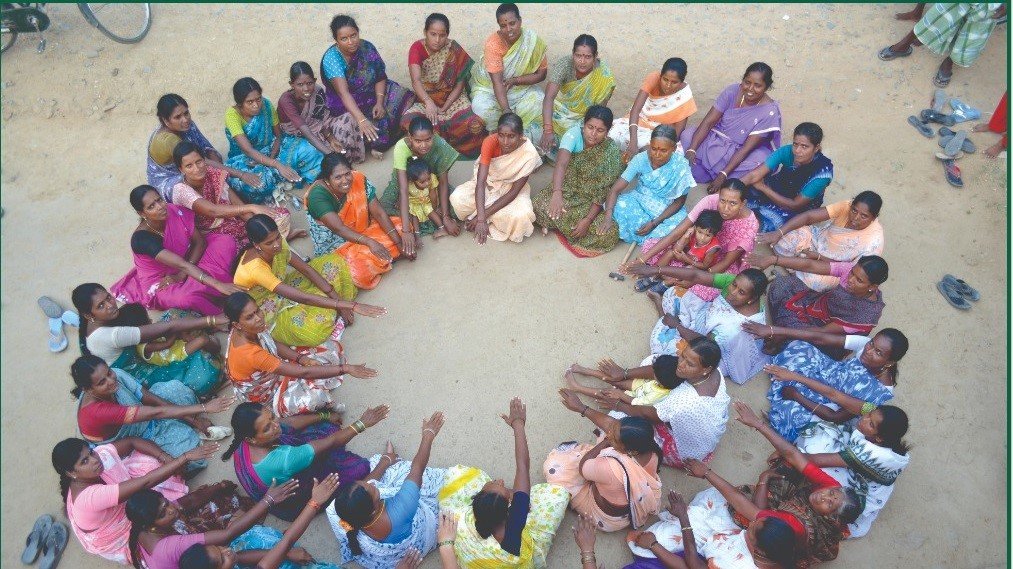Read in : தமிழ்
It has been a year since the DMK party assumed power in Tamil Nadu after a decade of being in the opposition. Ads in major newspapers and digital platforms recently projected the one year of DMK rule as one of glory. Some of the terms used in the publicity were “the driving force”, “maintaining a balance”, “boost to infrastructure”, “rejuvenating MSMEs”, “shining power sector” and so on. But some fact checking will help us see what the real achievements were.
Last week, Assam also celebrated one year of its new government. And Tamil Nadu’s achievements don’t quite match with Assam’s. Their assessment and parameters are realistic and Tamil Nadu’s are dubious. For instance, in Assam, in one year, the crime rate per lakh population has declined by 57%. The state’s economic growth rate was 13.89%. We do not know the status of Tamil Nadu at least for the above two aspects.
Power cuts, increased incidents of drug smuggling, corruption in government machinery and so on are some of the features of the one year of DMK party rule. Another feature of the Dravidian model seems to be anti-decentralization. The administrators of local bodies had the power to sanction projects worth below Rs.40 lakh but now that power has been curtailed and vests in the state capital.
Moreover, Tamil Nadu government has announced that it will get a loan of Rs.23,500 crore in the first quarter April – June 2022. The DMK government had already availed nearly one lakh crore rupees loans during the financial year 2021-22 for doles and freebies promised in their election manifestos. But few in the media covered it.
The government doesn’t seem to accord top priority to policies towards realising double-digit or higher economic growth. Only high economic growth will enable the government implement welfare programmes and schemes. A case in point is that the share of Tamil Nadu in overall national exports is only 9% whereas it is 19% for Karnataka.
The DMK pays lip service to important reforms which have been pending for decades such as in the power sector, loss-making public transport, loss-making state-owned public enterprises, etc, but hasn’t moved forward on them. The MSME sector is yet to be revived with infusion of capital and adequate infrastructure facilities.
There is not a single unicorn or start-up that emerged in the last one year because state politics is focused largely on welfarism, freebies, caste, language etc., all in the name of social justice. None of these will add value in the long term for the economy. Policy missteps have marked the one year of DMK party rule such as in the anti-NEET Bill, direct appointment of university vice chancellors, constituting a committee on New State Education Policy, instigating farmers against national projects like GAIL,etc.
Under the e-NAM registration of mandis with traders, Tamil Nadu is one of the worst performers with a registration of mere 63 Mandis (2912 traders), 98 FPOs with 2.15 lakh farmers which accounts for just 1% of the farmer population
Under the e-NAM registration of mandis with traders, Tamil Nadu is one of the worst performers with a registration of mere 63 Mandis (2912 traders), 98 FPOs with 2.15 lakh farmers which accounts for just 1% of the farmer population. Best performing states are Gujarat, Maharashtra, Rajasthan, Uttar Pradesh, and Haryana. The government’s “Meendum Manjappai” scheme is a much needed one and we should appreciate the novel initiative but the campaign did not reach the common people.
Tamil Nadu does score in several parameters, but the DMK party government cannot claim credit for it. For instance, in the latest report on the Multidimensional Poverty Index (MPI), Tamil Nadu was ranked as one of the top few states with the lowest poverty across India. Under the latest Sustainable Development Goals (SDGs 3rd Edition, June 2021), Tamil Nadu was ranked 2nd and one of the top three states in the country besides Kerala and Himachal Pradesh.
Tamil Nadu has allocated a higher budget at 5.3% on medical and public health and family welfare compared to other states. Delhi tops with 12%. Tamil Nadu is the top state in the country which has issued 2.47 crore E-Cards under the Ayushman Bharat Pradhan Mantri Jan Arogya Yojana (AB-PMJAY) with 10.9 hospitals approved for getting medical insurance coverage worth Rs 5 lakh every year for each eligible family.
When the Atal Innovation Mission (AIM) was announced in 2016, maximum applications (230) were received from Tamil Nadu in the academic category for start-ups. In terms of corporates/individuals, the state stood fifth (129 applications). Tamil Nadu is the second-highest funded state (Rs.25.58 crores) in the country for start-ups by youth and college students. Though, many new policies were announced over the last year, little effort was taken to lure potential investors with an assured ecosystem to move to the next level of industrialization.
(The author is an economist and public policy expert)
Read in : தமிழ்











